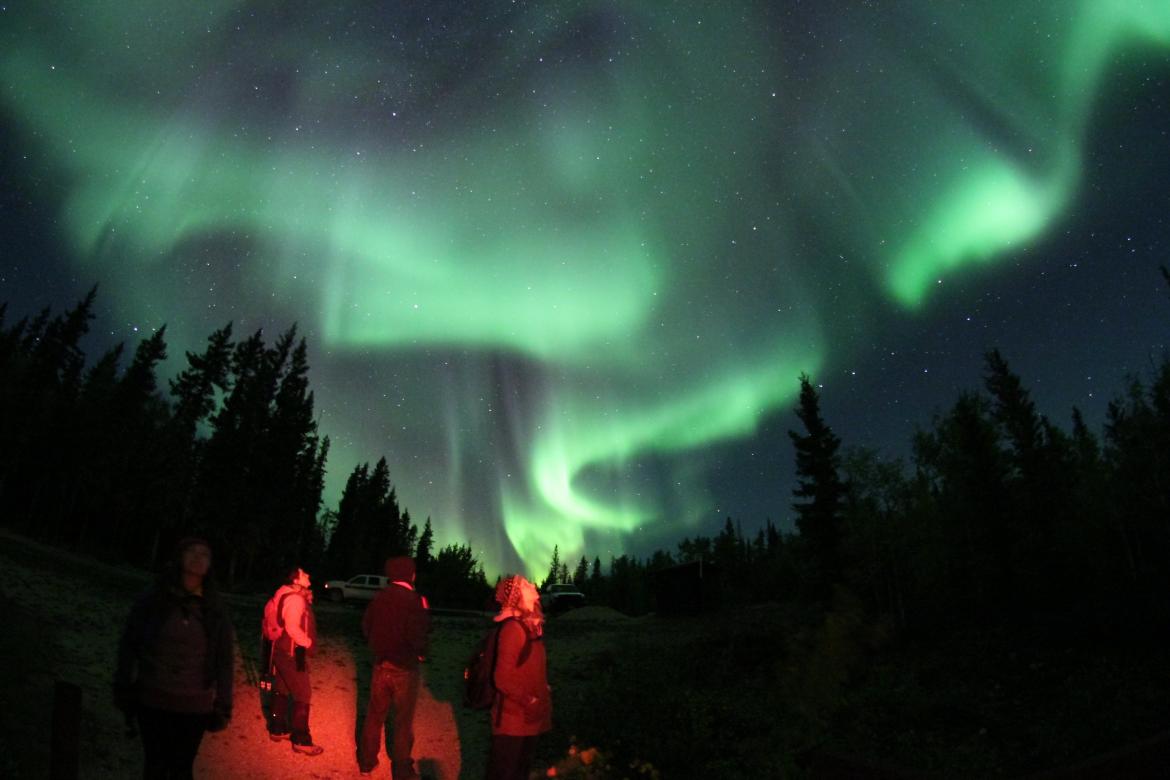Northern Lights of Fort McMurray
May 22nd, 2015The Aurora Borealis or Northern Lights are mesmerizing, dynamic displays of light that appear in the night time northern skies. The Aurora is caused by energetic particles that enter the atmosphere from above and create the luminous glow of the upper atmosphere. There are few sights that equal the magic and mystery of these brilliant waves of color dancing in the cool night air.
Fort McMurray is located within the auroral band that roughly centers on the 65th parallel, we are privileged to watch the Aurora Borealis dance most cold, clear evenings from October to March.
However, nature doesn’t follow a schedule and viewings on hot August nights are common. The aurora may appear for hours at a time or disappear in the blink of an eye. Patience and persistence are often required but the experience and memories are priceless.
 Viewing Tips
Viewing Tips
- Check the forecast at AURORAWATCH.CA.
- The best times to view the aurora are around midnight, but they can often be seen anytime from 9pm to 3am.
- Aurora viewing is affected by a variety of factors, such as cloud cover, moonlight, and urban light pollution.
- Aurora is often seen within the urban area of Fort McMurray but the light pollution can make it difficult to see the aurora, so head a few minutes out of town for better viewing.
- Be patient, wear warm clothes and bring something warm to drink.
- Look in the direction of North and North East
Photography Tips
- Use an SLR camera with a wide angle lens
- High speed film, 200 to 400 ISO
- Use manual settings and turn off all automatic features
- Use a tripod and cable release to prevent jarring
- Vary exposures anywhere from 15 to 60 seconds
- Don’t use filters
- Carry spare batteries in a warm place as the cold can cause them to lose power














